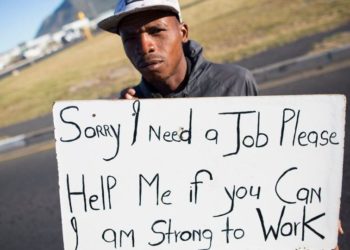Instead of unilaterally taking action against companies and individuals suspected of illegal financial activities, the banks should adhere to the guidelines of the global money laundering and terrorist financing watchdog.
SOUTH Africa’s major financial institutions risk having the country’s entire financial sector greylisted internationally if they continue to rely heavily on contract law and the Supreme Court of Appeal (SCA) judgment – Bredenkamp and Others v Standard Bank – to arbitrarily unbank clients without first subjecting them to law enforcement agencies.
Instead of unilaterally taking action against companies and individuals suspected of illegal financial activities, the banks should adhere to the guidelines of the Financial Action Task Force (FATF), which is the global money laundering and terrorist financing watchdog.
The executive manager for legal and policy at the Financial Intelligence Centre (FIC) Pieter Smit, at a National Assembly briefing by the FIC on FATF earlier this year, said it was unacceptable for banks to prematurely shut down bank accounts because that jeopardised FIC’s ability to act.
“This is in fact not a behaviour that the FIC encourages. We are very clear when we speak to the banks that we do not accept that a bank’s explanation that they cannot keep that account for an account holder because it jeopardises the FIC’s own work,” he said.
Meanwhile, several local banks have been fined more than R100 million for failing to comply with local and international regulations.
According to reports, if the country’s banks are greylisted they could be fined, restricted or shut out of the financial markets “on which they depend to raise capital”. To avoid being placed on the greylist, South Africa is expected to meet the FATF’s recommendations by February next year.
Addressing Parliament’s Standing Committee on Finance (SCoF) last week, South African Reserve Bank (SARB) governor Lesetja Kganyago confirmed that the failure to implement the recommendations of the report could result in the country being greylisted. “The mutual evaluation report had an adverse rating under technical compliance and effectiveness.”
Kganyago promised the committee that where it was responsible, SARB would demonstrate progress and compliance by the end of the year. “However, the process to avoid greylisting is more than what we are doing (as) it involves the law enforcement authorities and the prosecuting authorities.
“We have got a programme that we initiated in October 2020. We dedicated a workstream and we are confident that based on all these analyses, we will be able to comply,” he said.
In its Mutual Evaluation Report, the FATF revealed South Africa’s acute weaknesses in the anti-money laundering (AML) and counter financing of terrorism (CFT) systems, which might force FATF to greylist the country.
Instead of complying with the international standards, the local banks have opted to unilaterally terminate relationships with their clients’ relying on the 2010 Supreme Court of Appeal (SCA) judgment against Bedenkamp who had taken legal action against Standard Bank for closing his business account.
Ruling in favour of Standard Bank, the court said in summary that closing of accounts by a bank – when justified – exercise of a contractual right, which does not involve any public policy considerations or constitutional values, does not have to be fair.
As a result, a number of banks have, without involving the Financial Intelligence Centre (FIC), the Directorate for Priority Crime Investigation (Hawks) and the National Prosecuting Authority (NPA), shut down bank accounts of individuals and companies, including Sekunjalo Investment Holdings and its subsidiaries.
Section 29 of the FIC Act obliges accountable institutions, such as banks, to report suspicious transactions to the FIC. A failure by the accountable institutions to adhere to these obligations would expose it to regulatory sanctions by the SARB.
“Where necessary and upon request, this information is shared with local and international partners in the law enforcement environment and with the South African Revenue Service (SARS),” read the FIC Act.
The FATF started assessing the country’s banks three years ago and published its final report on October 7 this year. Among the recommendations of the FATF was that all regulatory authorities should subject beneficiary owners to fit and proper conduct and also verify that their directors, senior managers and additional owners or their associates are not involved in criminal activities.
It also called for all bank supervisors to improve their understanding of money laundering and terrorist financing risk. “All supervisors would use the full suite of law enforcement measures, including monetary personalities.”
The consequences of having the country’s banking sector on a greylist would have an adverse effect on the country’s vulnerable economy. “When the risks (of greylisting) materialise also tends to manifest themselves in the financial sector and then spread to the rest of the economy.”
Kganyago said: “Our concern here is that it not just that FATF will impose this on us, but that the other jurisdictions like the European Union, which treats the FATF findings as a minimum will step up their actions on South African-based institutions.
“It would mean that South African financial institutions and South African borrowers will be subjected to enhanced due diligence by the international financial institutions.”
He said the international entities might be reluctant and ask themselves if it is worth it to do business with the country. “In which case they will increase the cost of borrowing for South Africa or they might say it is not worth it … in which case they do not avail resources … in which case the net result will be that we will not have access to some of the capital we would have otherwise had to assess to.
“So the implications for the economy are massive, the cost of borrowing in this economy will go higher,” he said. The SARB would have to treat the issue of greylisting with urgency and “demonstrate significant progress so that we could actually prevent the greylisting. Or should we be greylisted we should come off that list within a period of 12 months,” Kganyago said.
| bongani.hans@falcons.org.za | investigations@falcons.org.za


















